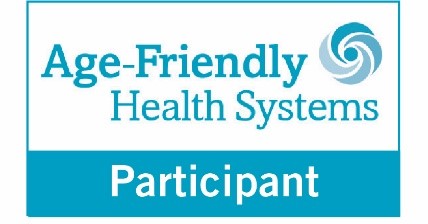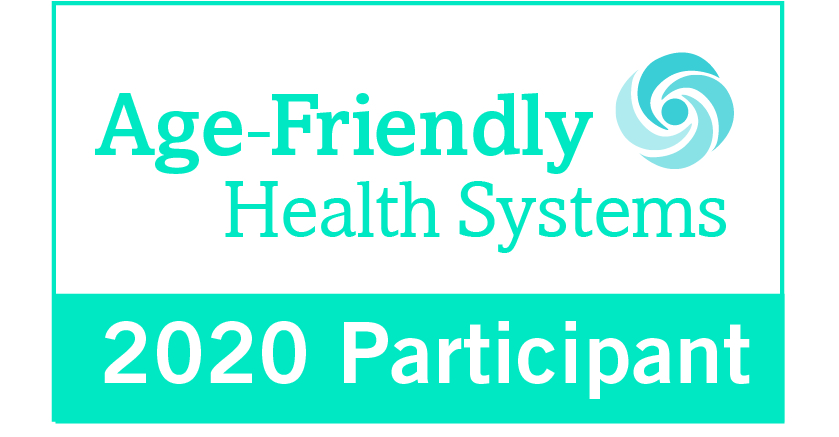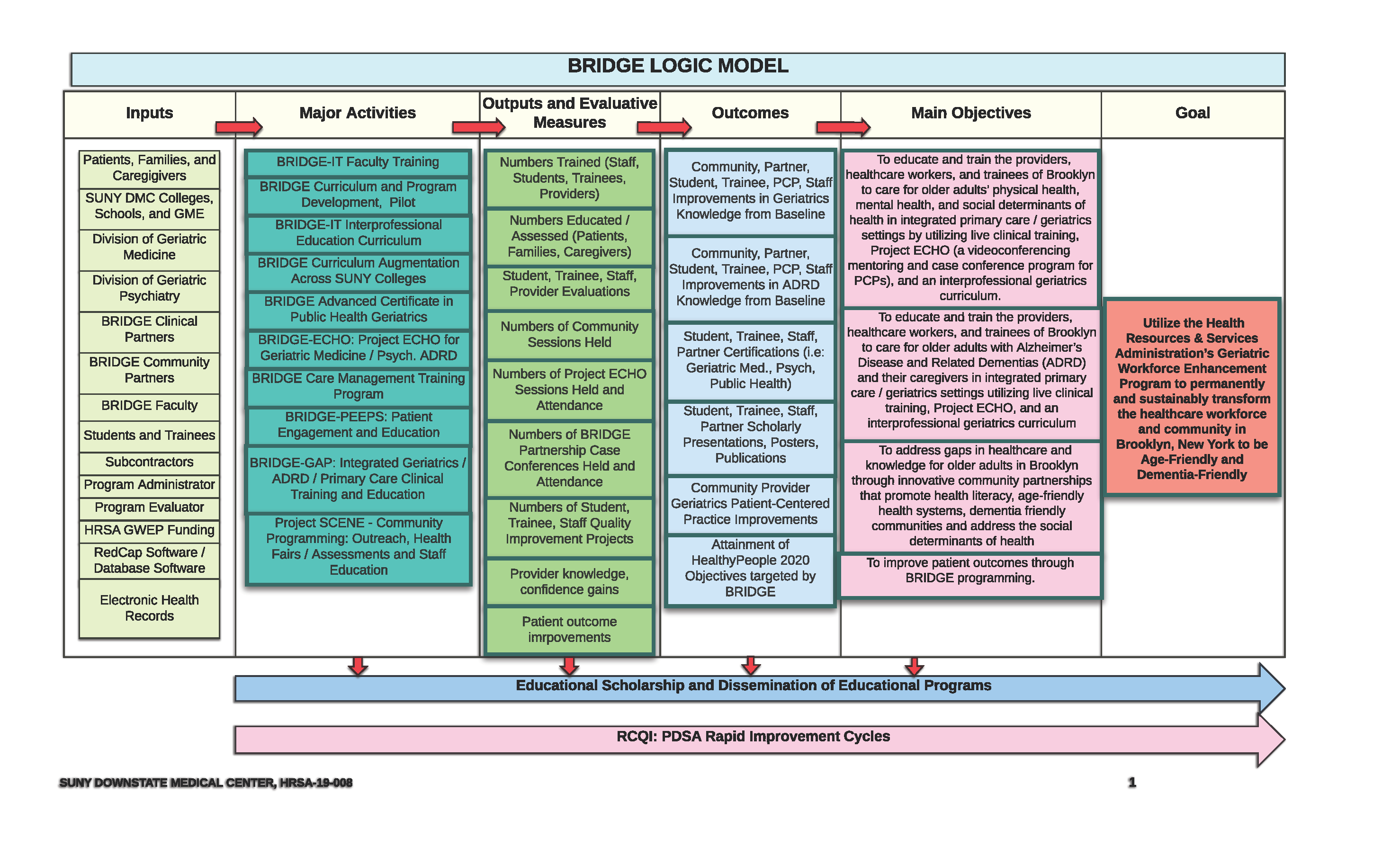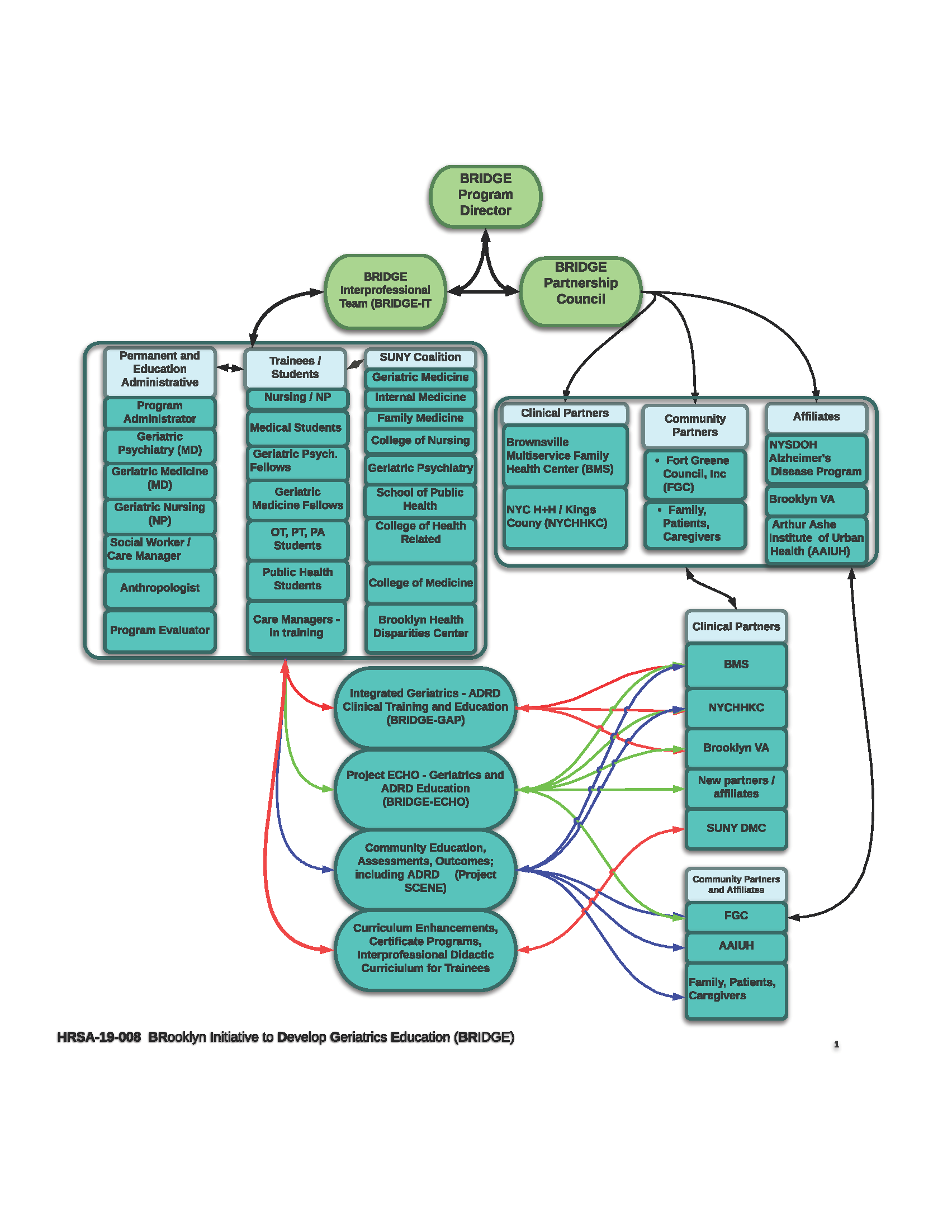Introduction
Brooklyn Initiative To Develop Geriatrics Education (BRIDGE) - funded by the Health and Human Services (HRSA) Geriatrics Workforce Enhancement Program (GWEP)
In 2019, The U.S. Department of Health and Human Services (HRSA), awarded a 5-year, grant to SUNY Downstate Health Sciences University (SDHSU), Department of Psychiatry and Behavioral Sciences, to prepare physicians, nurses, and other members of the health care team to provide comprehensive, integrated physical and mental health services for older adults. This model service and training initiative will be led by clinical and education experts in primary care, geriatric psychiatry and medicine, and nursing. Through intensive community partnerships and the development and implementation of innovative clinical, educational, and community programming, the BRIDGE program will strive to attain the overall goal of leveraging the Health Resources and Services Administration’s Geriatric Workforce Enhancement Program to permanently and sustainably transform the healthcare workforce and community in Brooklyn, New York to be Age-Friendly and Dementia-Friendly.
The BRIDGE Program is composed of SUNY Downstate Health Sciences University (SDHSU) (the College of Nursing (CON), the Department of Medicine (DOM), the Department of Psychiatry, the Division of Geriatric Psychiatry, the School of Public Health (SOPH) and the School of Health Professions (SOHP), two primary care delivery systems in Brooklyn: NYC Health + Hospitals Kings County (NYCHHKC), the Brownsville Multi-service (BMS) Family Health Center; and a large community-based organization: the Fort Greene Council, Inc (FGC), which consists of 13 Brooklyn’s Department for the Aging-funded senior centers.
Our Goal
Permanently and sustainably transform the healthcare workforce and community in Brooklyn, New York to be Age-Friendly and Dementia-Friendly.
Our Principal Objectives
- To educate and train the providers, healthcare workers, and trainees of Brooklyn to care for older adults’ physical health, mental health, and social determinants of health in integrated primary care / geriatrics settings by utilizing live clinical training, Project ECHO (a videoconferencing mentoring and case conference program for PCPs), and an interprofessional geriatrics curriculum.
- To educate and train the providers, healthcare workers, and trainees of Brooklyn to care for older adults with ADRD and their caregivers in integrated primary care / geriatrics settings utilizing live clinical training, Project ECHO, and an interprofessional geriatrics curriculum, i.e., curriculum that integrates medicine, nursing, and health-related professions.
- To address gaps in healthcare and knowledge for older adults in Brooklyn through innovative community partnerships that promote health literacy, age-friendly health systems, dementia friendly communities and address the social determinants of health.
- To improve patient outcomes through our BRIDGE educational programming, including the following outcome measures: Dementia Caregiver Education & Support, Evaluation or Interview for Risk of Opioid Misuse, Care plans, Diabetes / Hemoglobin A1C, High Blood Pressure Control, Colon Cancer Screening rates, & High Risk Medications in the Elderly.
1 Note: This program is supported by the Health Resources and Services Administration (HRSA) of the U.S. Department of Health and Human Services (HHS) as part of an award totaling $3.75 million with zero percentage financed with nongovernmental sources. The contents are those of the author(s) and do not necessarily represent the official views of, nor an endorsement, by HRSA, HHS or the U.S. Government.
BRIDGE Event Schedule
BRIDGE Partners
- NYC Health + Hospitals/Kings County
- Brownsville Multi-Service Family Health Center
- Arthur Ashe Institute of Urban Health
- Fort Greene Council Inc.
Content



